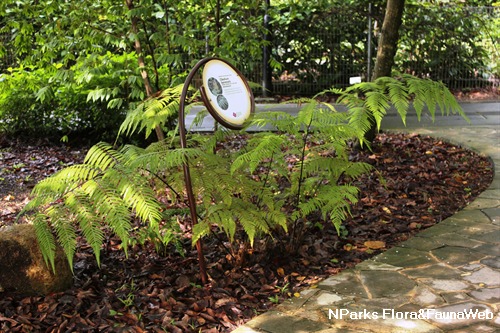
Back
Cibotium barometz (L.) J.Sm.
| Family Name: | Cibotiaceae |
| Common Name: | Golden Chicken Fern, Paku Ayam Mas, Bulu Pusi, Woolly Fern, 金毛狗 |
Name
Classifications and Characteristics
| Plant Division | Ferns & Lycophytes (Non-Seed Vascular Plants) (Fern) |
|---|---|
| Plant Growth Form | Herbaceous Plant |
| Lifespan (in Singapore) | Perennial |
| Mode of Nutrition | Autotrophic |
Biogeography
| Native Distribution | China and South East Asia |
|---|---|
| Native Habitat | Terrestrial |
| Preferred Climate Zone | Tropical, Sub-Tropical / Monsoonal |
| Local Conservation Status | Non-native |
Description and Ethnobotany
| Growth Form | Large, slow growing fern growing up to 1 m tall. |
|---|---|
| Roots | Rhizome stout or stump-like, densely covered with golden brown hairs. |
| Foliage | Fronds can grow up to 1.5 - 2 m long, 2-pinnate pinnatifid. |
| Stems | Stipe can grow up to 1 m long or more. |
| Etymology | Genus Cibotium "means "little box" and refers to the sporangia. Species barometz is from the Tartar word "barants' and refers to the woolly rhizome of the fern. |
| Ethnobotanical Uses | Edible Plant Parts : Edible Storage Organs Medicinal: Rhizomes and roots were reportedly collected and used for treatment of ulcers, rheumatism and coughs. |
Landscaping Features
| Landscape Uses | Parks & Gardens, Small Gardens |
|---|
Fauna, Pollination and Dispersal
| Seed or Spore Dispersal | Abiotic |
|---|
Plant Care and Propagation
| Light Preference | Semi-Shade |
|---|---|
| Water Preference | Moderate Water |
| Rootzone Tolerance | Moist Soils, Well-Drained Soils, Acidic (low pH) Soils |
| Propagation Method | Spore |
Foliar
| Foliage Retention | Evergreen |
|---|---|
| Mature Foliage Colour(s) | Green |
Image Repository
Others
| Master ID | 29507 |
|---|---|
| Species ID | 3816 |
| Flora Disclaimer | The information in this website has been compiled from reliable sources, such as reference works on medicinal plants. It is not a substitute for medical advice or treatment and NParks does not purport to provide any medical advice. Readers should always consult his/her physician before using or consuming a plant for medicinal purposes. |

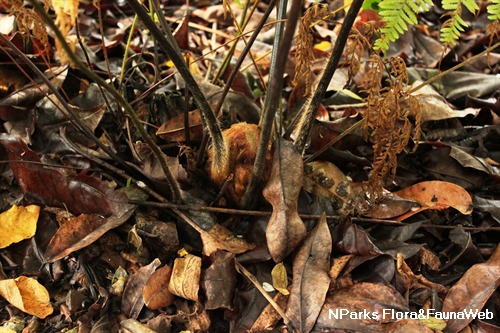
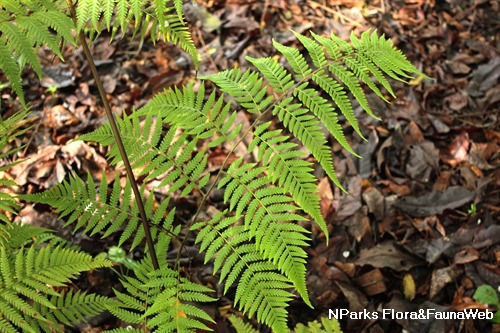
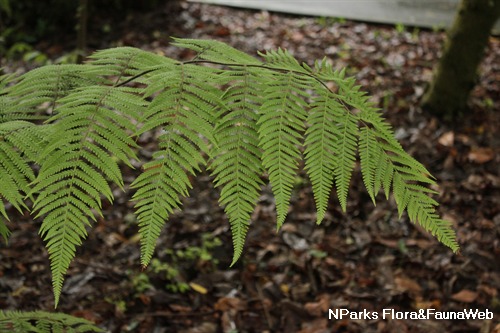
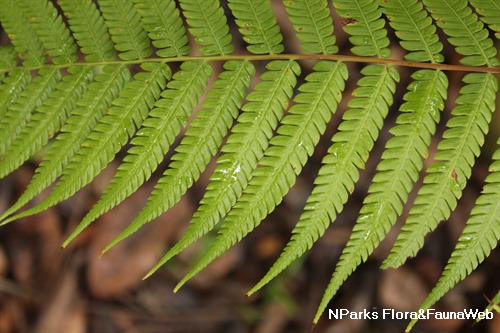
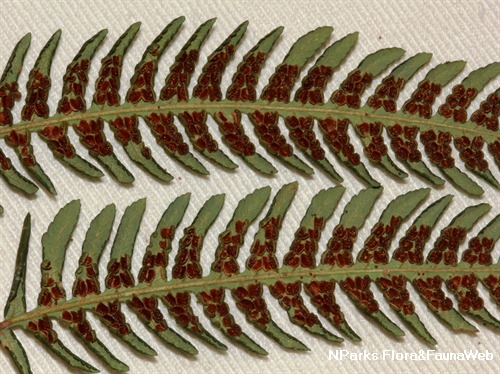
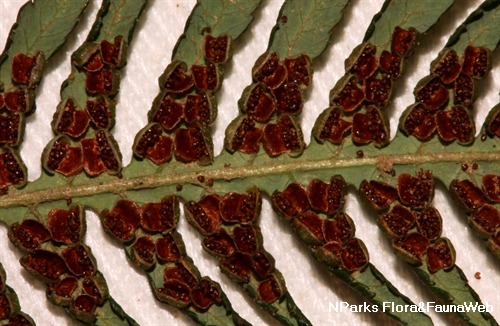
.jpg)
.jpg)
.jpg)